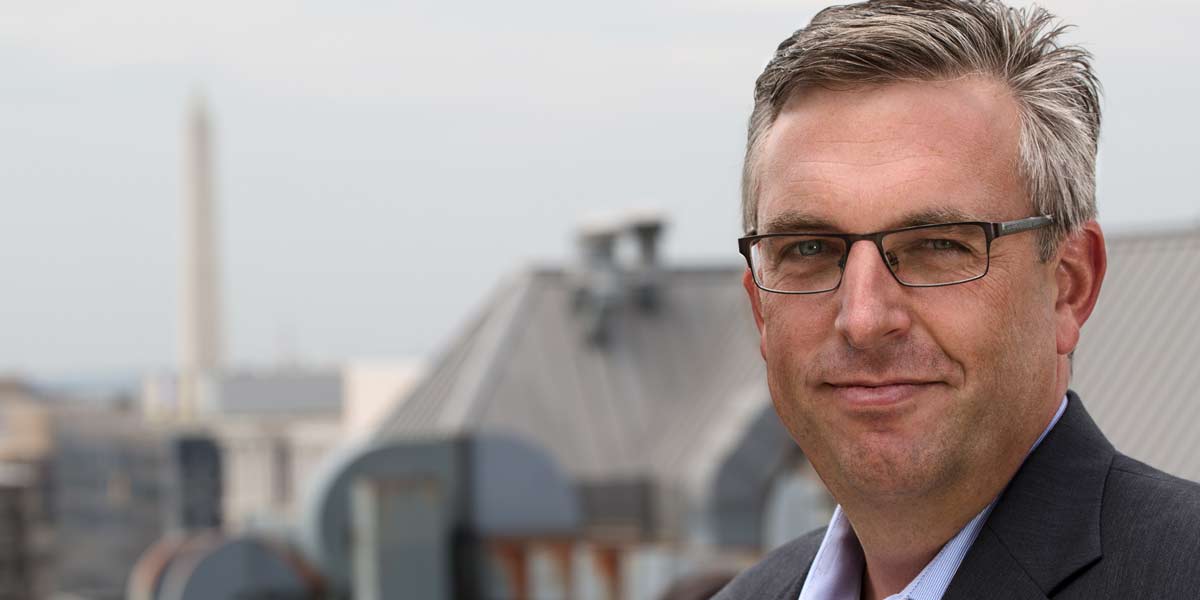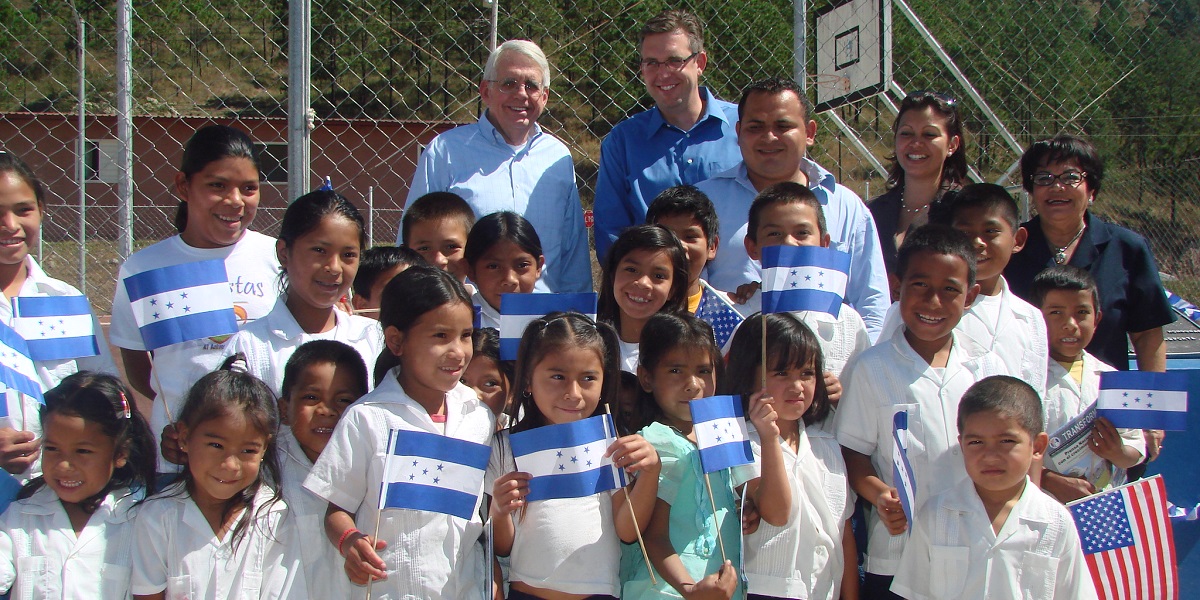In January 2017, Jonathan Nash was appointed Acting Chief Executive Officer of MCC. With more than 20 years of experience in international development, including more than 10 years at MCC, Nash oversees MCC’s economic assistance programs aimed at reducing poverty through economic growth. I recently sat down with him to hear more about his work in international development and his career at MCC. See excerpts from our conversation below.

MCC
My father was a civil engineer in the Navy, so we typically moved every two or three years. I was born in Spain, just outside of Madrid, and lived in various places in California, Mississippi, Virginia and Hawaii, where I graduated from high school. I went to the University of Michigan’s School of Natural Resources and Environment for my bachelor of science degree.
How did you get your start in international development?
After college, I joined the Peace Corps and was posted to Trujillo, a small town on the northern coast of Honduras. I spent the mornings at a junior high school teaching science, and in the afternoons, I worked with a local non-governmental group that managed two national parks nearby. As much as I felt that I was able to give to the community where I was living, the people I got to know gave me as much, if not more, because I was able to see the world in a different way.
In a way, my time in Honduras was a precursor to the work I have done here at MCC — it left an indelible mark on me and influenced the way I think about poverty and working with others to help people lift themselves out of poverty. It was there that I first started thinking about sustainability in development. And I fully bought into one of MCC’s founding principles: If you want long-term sustainable change or growth, you need to focus on country-ownership, country-led solutions and capacity building.
What brought you to MCC?
After my Peace Corps service, I went to Indiana University’s School of Public and Environmental Affairs to explore the policy side of international development. I later joined the U.S. Government Accountability Office (GAO), where I learned the value of using data, evidence and results in program evaluation and design and the importance of communicating in a way that is useful to policymakers.
In the early 2000s, I began hearing about the Millennium Challenge Corporation, a new government agency that was being set up to encompass all the tenets of country ownership, accountability, selectivity, and evidence-based programs that I valued based on my experiences in Honduras and at GAO. Once I joined the team, I saw the amazing potential of this place. More than a decade later, I continue to be inspired by my colleagues and the agency’s work.
We like to joke that “Challenge” is our middle name, and it was truly challenging in those early days as we were figuring out new models and setting high standards both for ourselves and our partner countries. My first job at MCC was working with our country partners to implement large-scale infrastructure projects in ways that avoided negative impacts to the communities and helped build on their natural and social capital.

MCC
Jonathan Nash (back row, center) celebrates the opening of an MCC-funded school alongside students and Honduran government officials in Colonia Las Pumas in 2011.
Honduras, my Peace Corps country, was one of the earliest MCC compacts. The Honduras Compact focused on strengthening the agriculture sector and included the rehabilitation of a national highway that connects the country with international markets. One of my roles was to help our country partner manage the resettlement program for the people living along the road that was being expanded. Many of these people made their living selling fruits, crafts and other goods to customers passing by.
It was important to us that these homes and informal markets were not simply bulldozed out of the way. Instead of viewing the residents as obstacles, we made them partners in the project. We spent a lot of time working with local community leaders to build quality housing for them, help them secure titles to land, set up well-lit market stalls, connect them to water and other municipal services, and build a school for their kids. We treated each other with mutual respect, and it is extremely rewarding to see these communities today, because they are thriving.
You joined the agency in 2006, just two years after its founding. How has the agency changed as it has matured?
One thing I have always appreciated about MCC is our hyper-focus on learning and adapting. Not only did we dedicate resources and time to impact evaluations of our early compacts, we have spent a tremendous amount of effort applying the lessons we learned to our later compacts. Our compacts have also become more focused. Today’s compacts are going deeper into one or two sectors — be it agriculture or power — to foster transformational change. We take the time up front to think about the conditions — both from policy and institutional perspectives — that need to be in place to assure success.
We have also become much more deliberate and consistent about partnering with the private sector throughout the entire compact lifecycle to drive economic growth in our partner countries. We take the time to engage with the private sector to determine what’s keeping them from making initial investments. This engagement not only benefits our partner countries, but also helps American firms break into some incredibly high-growth markets abroad.
What have you learned during your more than 20 years working in international development?
The face of poverty is changing, and simultaneously, the role of official development assistance has changed. Today, private-sector investment represents the majority of financial flows into developing countries. And this is a great opportunity for MCC to use our limited grant dollars in ways that facilitate and leverage private investment.
When it comes to poverty reduction, there’s no silver bullet. There’s no one entity that has all of the answers. At MCC, we will continue to use our model of partnering with well-governed, poor countries to fight poverty through growth. And we will continue to support — and collaborate with, where possible — our colleagues who are in this fight with us, including our partner countries, the private sector, other development agencies, non-governmental organizations, and foundations.
Lastly, work aside, what do you do for fun?
I have a young son and daughter, so a lot of my free time goes toward spending time with my family. We enjoy time at the beach, going hiking, playing sports, and attending baseball, basketball, soccer and gymnastics events. We’re big University of Michigan sports fans.
Learn more about MCC’s new Acting CEO at www.mcc.gov/about/profile/bio-jonathan-nash.

